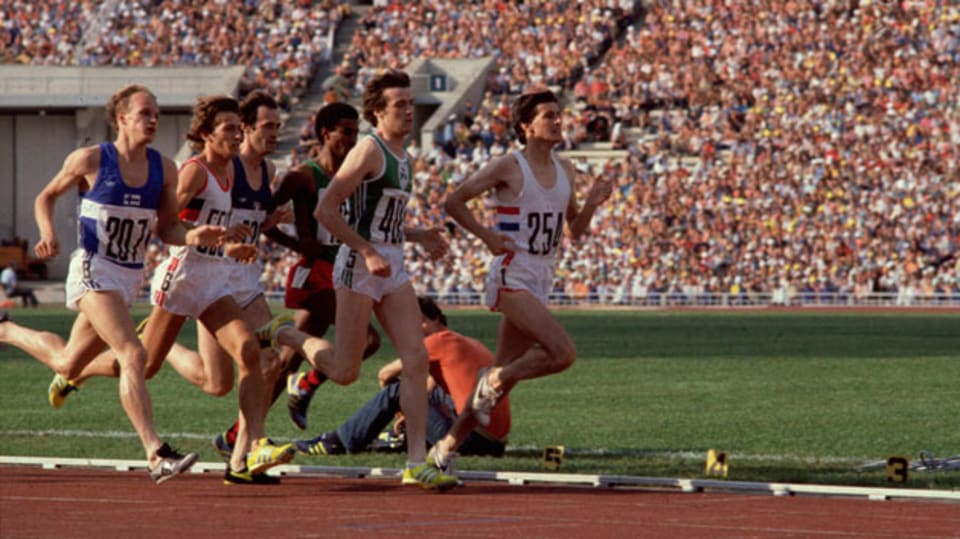
Coe had been expected to win over his favourite distance, but he had run a shocking tactical race and Ovett was able to inflict a rare defeat on his British team-mate.
The notoriously severe British press were having a field day at Coe’s expense while at the same time lauding Ovett for his masterful run for gold at the Lenin Stadium.
Immediately after his defeat Coe recognised the significance of the 1500m. “The 1500 was going to be a hard event anyway, but now it’s going to be the big race of my life. I must win it.”
The task facing Coe ahead of the 1500m was formidable.
Ovett had not been beaten over the distance in more than three years, and had equalled Coe’s record a matter of days before the 800m heats in Moscow.
The two cruised through their heats in contrasting style, with Coe blowing hard to win his while Ovett raised a casual arm to acknowledge the crowd before he had even crossed the finishing line.
As the race started, Coe was never going to let himself get boxed in or fall too far off the pace as he had done in schoolboy fashion in the 800m.
Coe was on the shoulder of leader Jurgen Straub of East Germany at the bell, with Ovett lurking dangerously behind.
The two of them relied on their finishing kick round the final bend, but Ovett simply did not have enough running in him to close down the one metre gap.
Ovett eased up in the closing paces to give Straub the most unexpected of silvers, and he celebrated as if he had won.
However, the most iconic image of the race and perhaps the entire Games was of Coe as he crossed the line, his face etched with exhausted relief and vindication.
He quickly turned to his detractors in the press box and lifted a triumphant No. 1 finger.
Coe would go on to become the only man to retain the 1500m title when he clinched gold in Los Angeles four years later.
